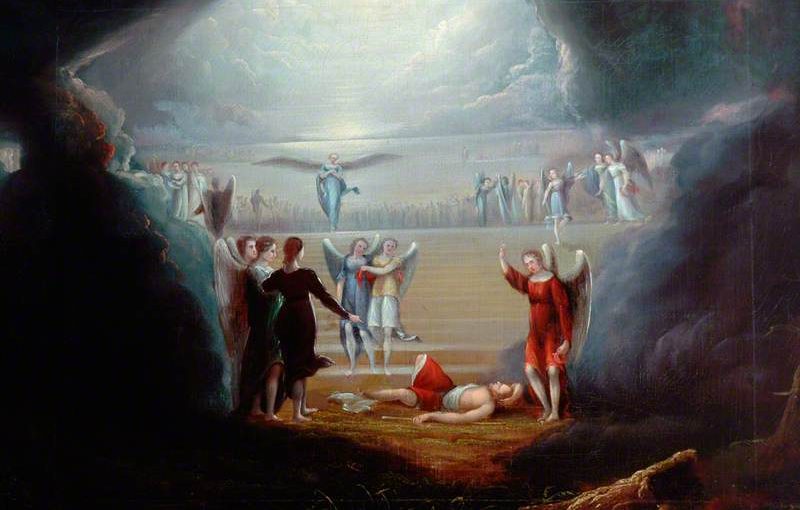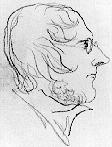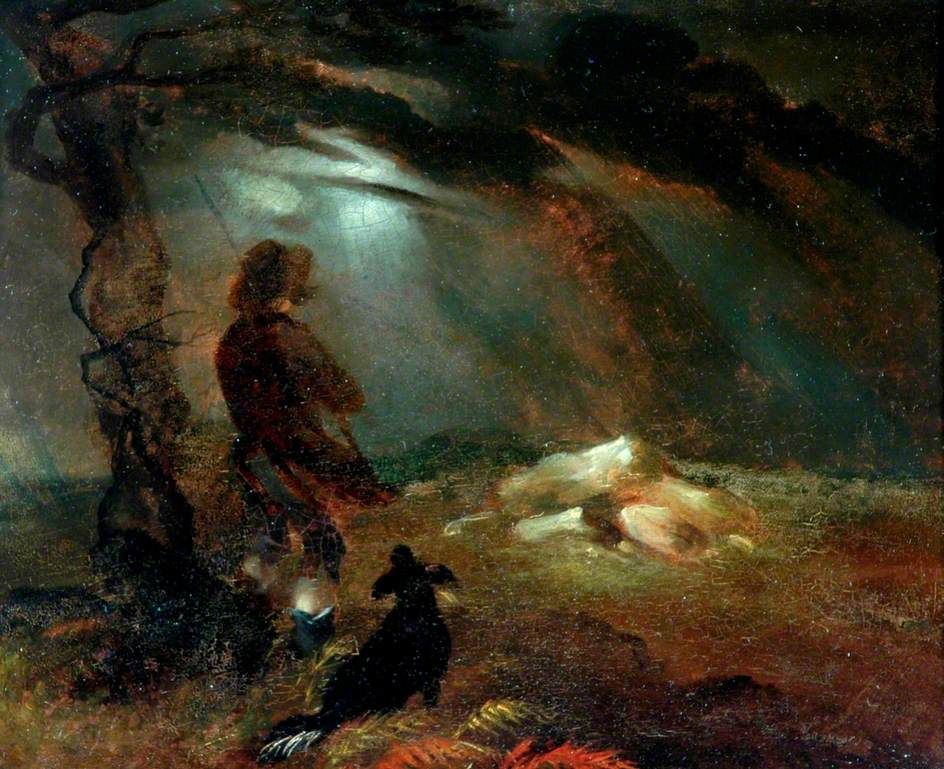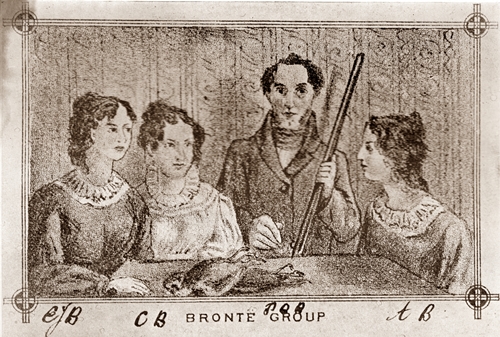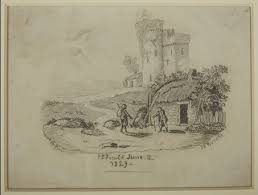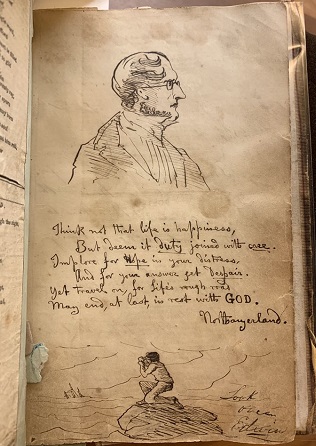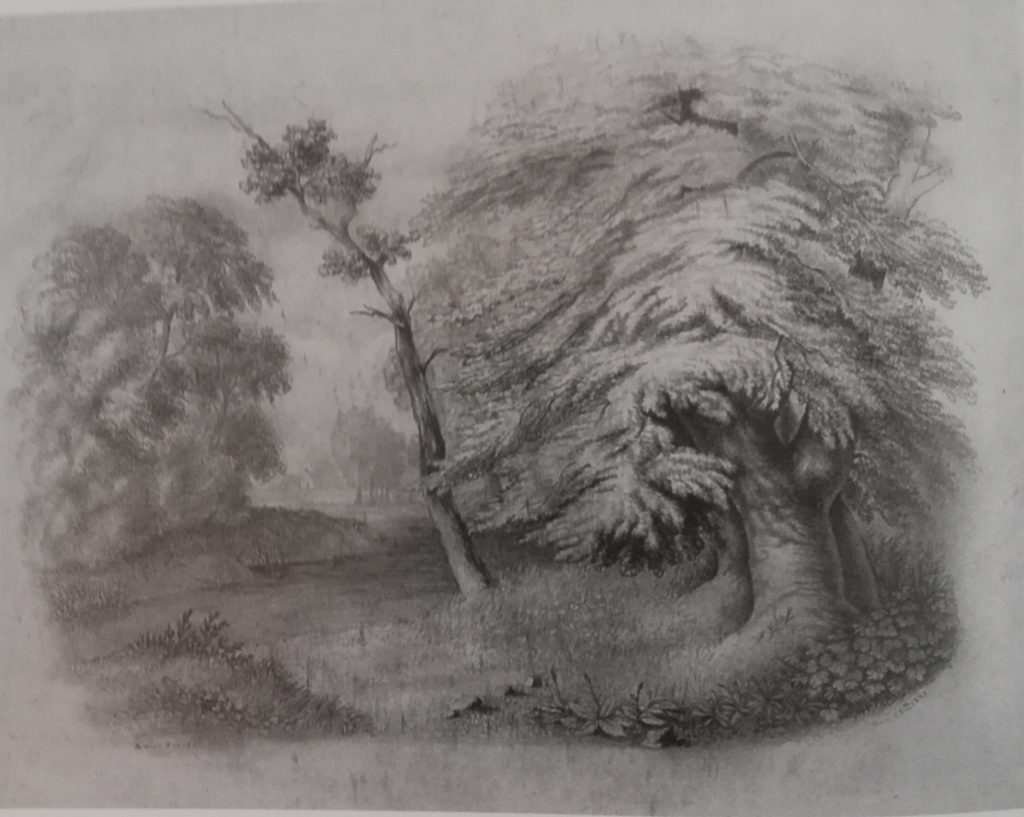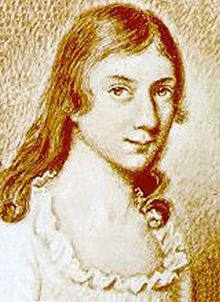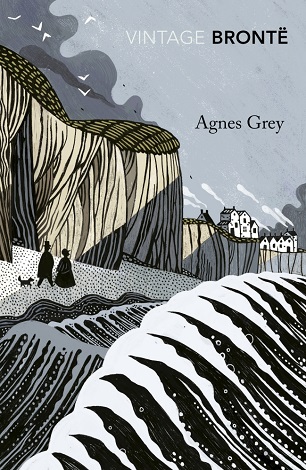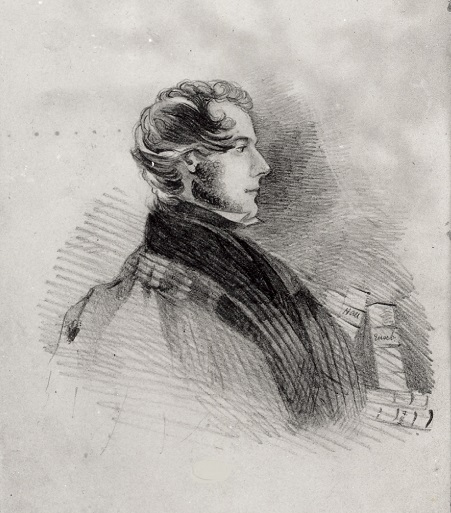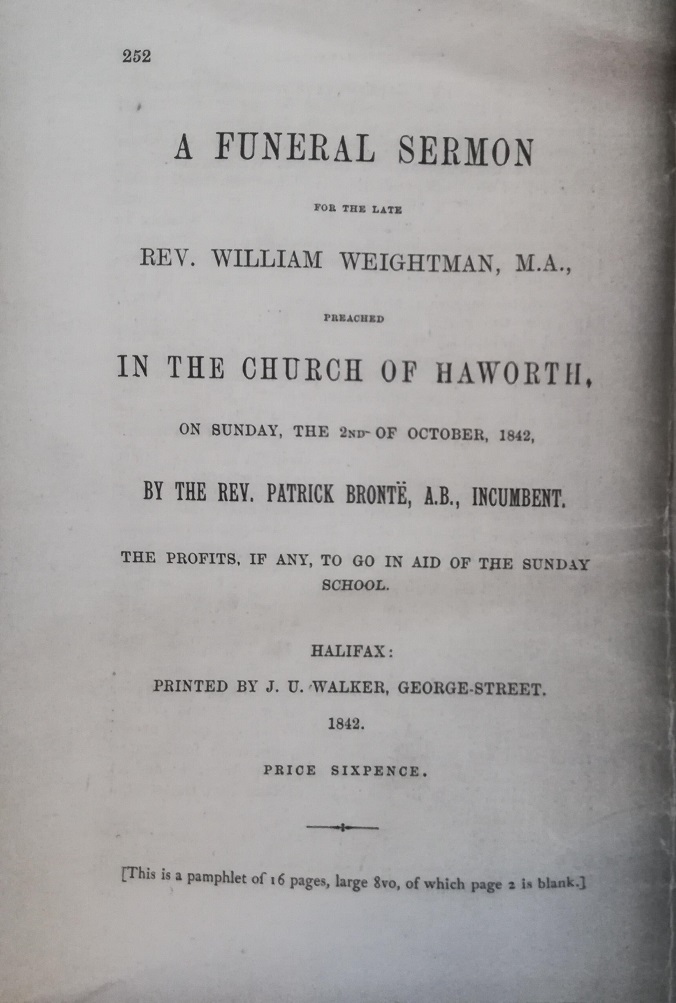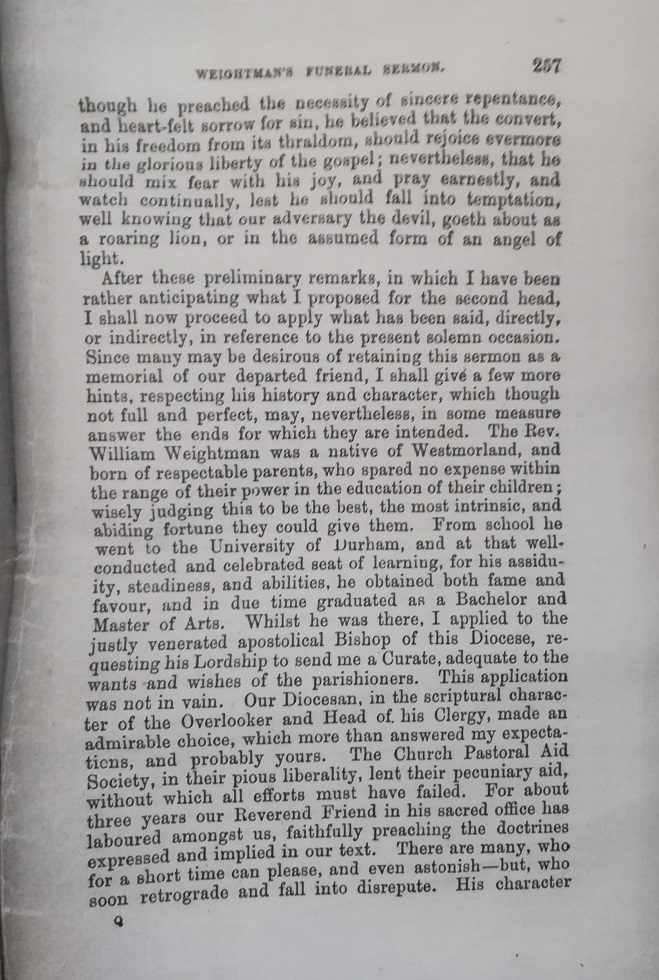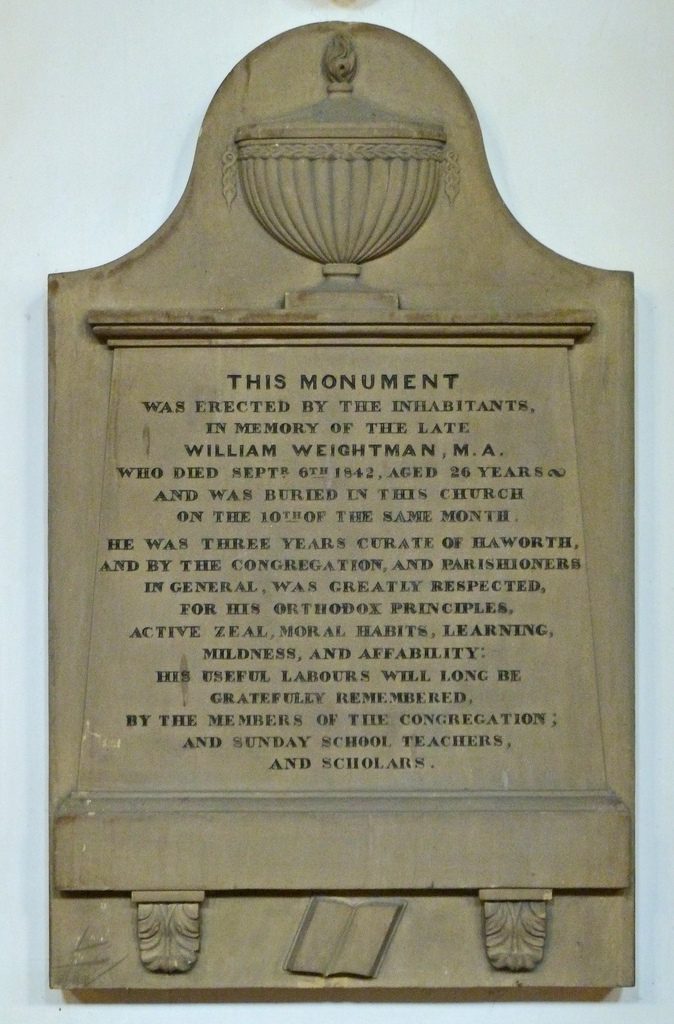It is likely that we would have none of the Brontë books we so love today without the aid of their aunt, Elizabeth Branwell. Why so? Simply because it was the legacy that Aunt Branwell left Anne, Charlotte and Emily Brontë that allowed them to pay for their first book, ‘Poems by Currer, Ellis and Acton Bell’ to be published, and that allowed Anne and Emily to pay Thomas Cautley Newby to have ‘Agnes Grey’ and ‘Wuthering Heights’ published.
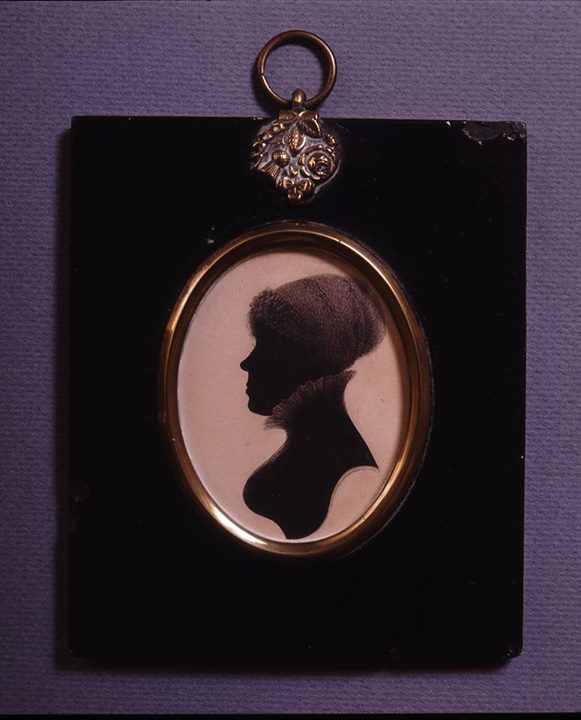
Aunt Branwell’s will came into effect in 1842, and after dividing her worldly goods between Anne, Charlotte, Emily and Branwell, she finishes by dividing her money: ‘after the aforesaid sums and articles shall have been paid and deducted, shall be put into some safe bank or lent on good landed security, and there left to accumulate for the sole benefit of my four nieces, Charlotte Brontë, Emily Jane Brontë, Anne Brontë, and Elizabeth Jane Kingston; and this sum or sums, and whatever other property I may have, shall be equally divided between them when the youngest of them living shall have arrived at the age of twenty-one years.’
Anne Brontë, the youngest of these four cousins, was 22 years of age at the time, meaning that they all came into their inheritance equally and immediately. Four cousins benefited but whilst the world knows three, the fourth remains obscure, and yet the story of Eliza Kingston is the most tragic of them all.
The Branwell family of Penzance was a large one, so why was Eliza the only other niece or nephew that Aunt Branwell remembered in her will, other than the Brontës with whom she had lived for more than 20 years? Eliza was the daughter of Jane Kingston, older sister of Elizabeth and of Maria, the mother of the Brontë siblings. She married a Methodist minister, and former missionary, named John Kingston in 1801 in Madron, Cornwall, but before long Reverend Kingston had been banished from the Methodist church and he, Jane and their family had to sail for Baltimore in America to start a new life together.
Sadly things went from bad to worse for the Kingston marriage and in April 1809 Jane Kingston set sail from New York and returned to her beloved Penzance. With her was the baby Elizabeth named after her sister, but forever called Eliza, born in America, but tragically she had to leave her three older children behind with their father.
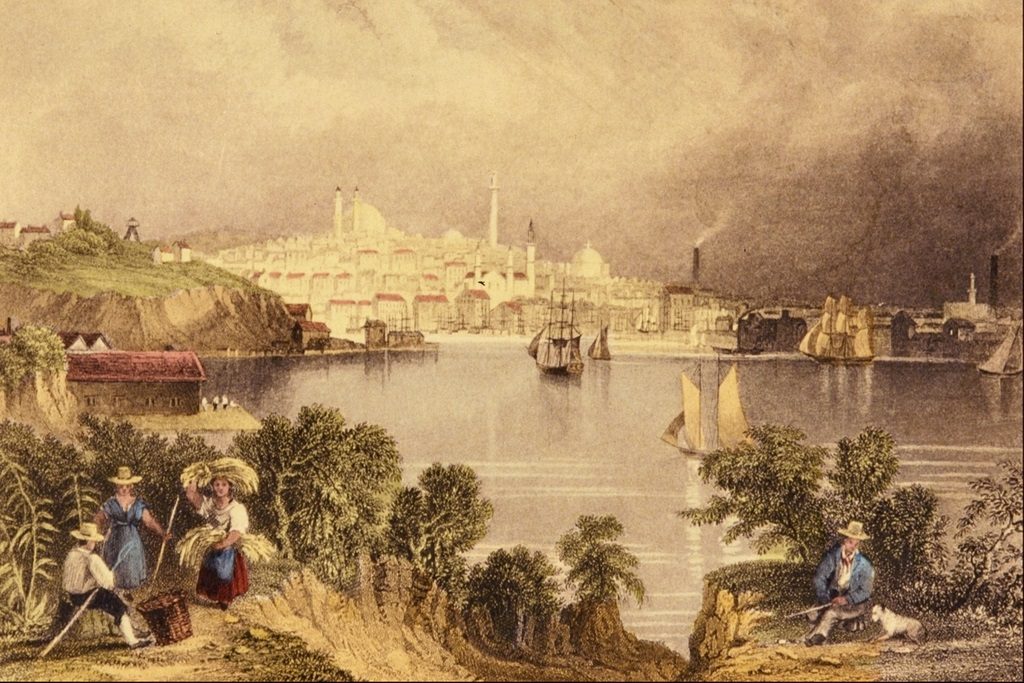
Jane was back in Cornwall and living a short distance from the Branwell house on Chapel Street; due to an abusive marriage she’d had to leave her husband and wave goodbye forever to all but her baby. She was a single mother and her conduct at that time would have been seen by many as scandalous, but the way she was treated by her sister Elizabeth tells us much about her. We know from Aunt Branwell’s will that she had provided money to Jane to set up her own business, and it is clear to see that she had continued to look out for her niece Eliza as well. Elizabeth Branwell was a woman who would never turn her back when her family were in need. I believe that it is also clear that she told her Brontë nieces about this ill starred aunt and cousin in Penzance, for let’s boil Jane’s story down to its essentials: she married a man who was not what he seemed; she had to take her young child and leave her husband far behind, trying to make a new life with the help of a sibling who stood by her. It seems clear that Jane Kingston, aunt to Anne Brontë, was in fact the original of Helen, the Tenant of Wildfell Hall.
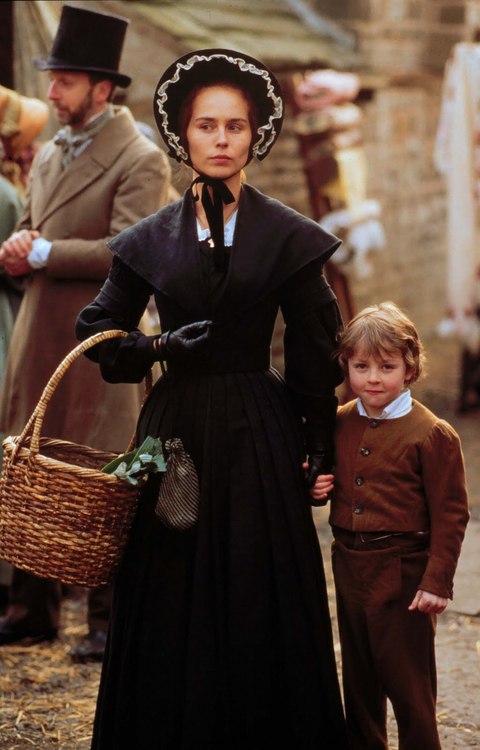
Jane Kingston died in 1855, but what happened to Eliza, the quarter share recipient from her Aunt Elizabeth’s will? It’s a story as sad as any in the Brontë cannon. She invested her inheritance in the Cornish tin mining industry made famous today by Poldark, and at first her investment flourished. We know from her letters to an American brother-in-law that she was aware of her Brontë cousins and had read her books, and she was also in correspondence with Patrick Brontë – in fact it’s thanks to a letter from Eliza that we see the last ever glimpse of Patrick, in 1860 the year before he died:
‘I had a letter from my Uncle Brontë last June. He says he was in his 83rd year, but, though feeble, was still able to preach once on Sunday, and sometimes to take occasional duty; his son-in-law, Mr. Nicholls will continue with him. He says strangers still continue to call, but he converses little with them, but keeps himself as quiet as he can. I understand the Brontës were beloved in their own neighbourhood.’
In 1854, Eliza gave a pen portrait of herself in a self-deprecating way very reminiscent of her Haworth cousin Charlotte:
‘My dear Brother, you ask me do I look like Anne [her by then deceased sister to whom Joseph was once married]. Alas, no! I fear I am neither like her in features, form, or disposition. My mother thinks she was her best child, and I am about the worst, but you shall judge for yourself. I am of middle stature, rather large boned, but not very fleshy, high shouldered, short necked, neither fair nor dark, high cheek bones, large mouth, irregular teeth, grey eyes, brown hair, very grey on the front part of my head… of an irritable temper, but frank and open with those I like, rather impudently so sometimes. To crown all, I am an Old Maid of 46, or shall be so on the 23rd of this month. It has cost me an effort, I assure you, to give this picture of myself, but as you wished to know particulars, I thought it best to be candid. I might have married, but I did not like the offers, nor did I think them suitable. When I tell you I have always greatly admired beauty under all circumstances, you may partly guess what mortifications and painful feelings I have had to endure.’
Before long however, Eliza’s investments became worthless and she began a descent into complete and utter poverty and despair. By 1866 she, in desperation, is writing to known philanthropists begging for help:
‘I thought some time since that there are institutions for the help of those in reduced circumstances, I would try to ascertain their rules. One, the National Benevolent Institution, does not help those under 60. I am not yet 58. I was advised to write Miss Burdett Coutts who is said to be the richest commoner in the United Kingdom. I did it on the 1st of this month… but received no reply, the case twice before to others.’
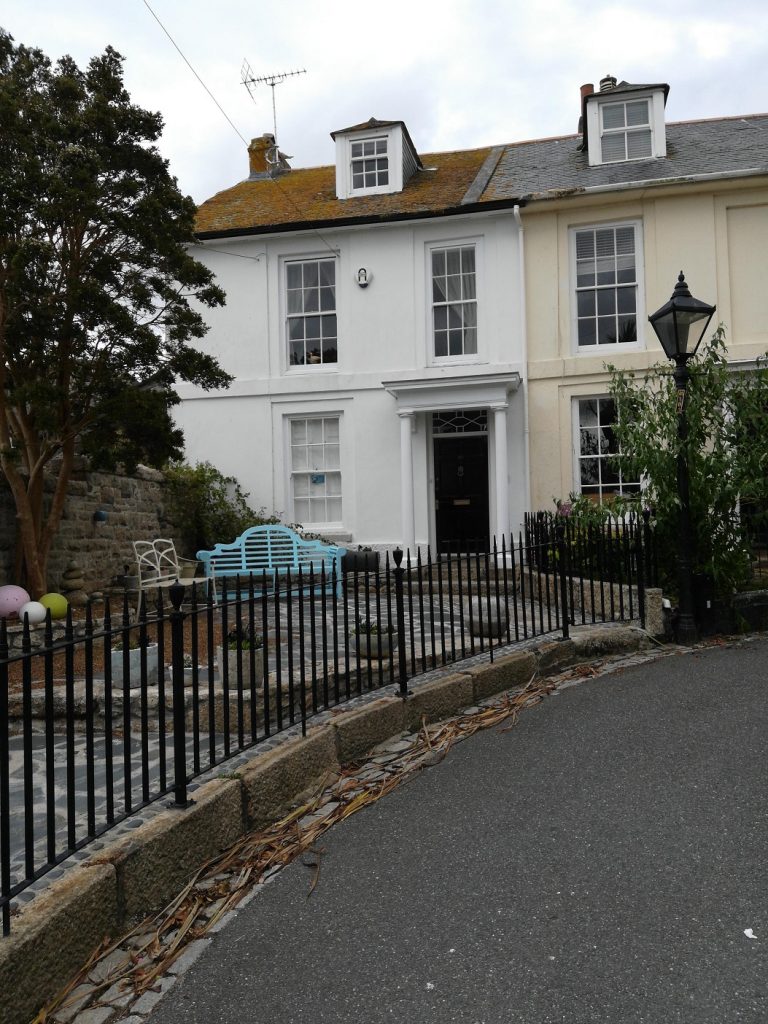
Eliza’s final letter to her brother in law Joseph is terrible and moving:
‘I feel very weak at times, if I over-exert myself or do not take sufficient nourishment; I require (if I could have it) animal food every day… I cannot live so low as I used to. I was informed that it was a case of nervous debility which I knew before… there is often a cobweb (or something like it) floating before my left eye… I live in constant dread of the future… I have no prospect of a home or rooms or indeed any money to pay rent… God only knows how it will end… I sometimes feel as if my heart would break.’
In 1878 Eliza Kingston died; she had lived a longer life than her Brontë cousins, but in no measure a happier life. The place of her final days is revealing; she was in a Penzance lunatic asylum. In her letters we see that Eliza is a fine writer in her own right, and after her death a distant relative gives us one final tragic glimpse of Eliza:
‘I think my mother asked Miss [Eliza] Kingston about Charlotte Brontë on more than one occasion. They talked about her together, and Miss Kingston spoke a good deal about what Charlotte Brontë had brought out in her works, and how she depicted characters. I have a vivid recollection of wonder that our poor cousin Eliza Jane could say such beautiful things and see so much in books, and yet look so plain and prosper so badly. Is there any record of the book she wrote, or was it only a part? Perhaps she destroyed it. She said no one would publish it.’
So now we see that just like Anne, Emily and Charlotte, cousin Eliza too used the money and freedom that Aunt Branwell’s legacy left them to write a book. But Eliza’s book is lost forever, nobody would publish it, and now nobody will ever see it, however brilliant it may have been. Even so, let’s keep the name of Eliza Kingston alive.

